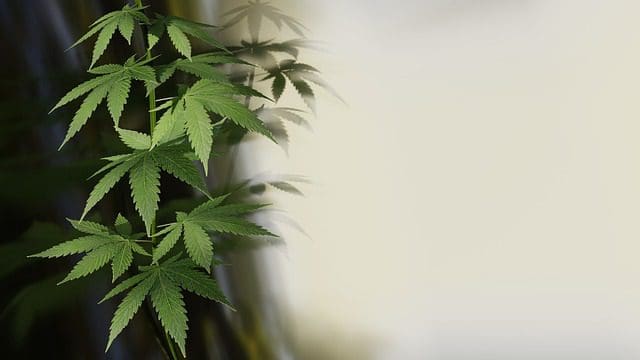In a world where cannabis has long been shrouded in stigma, perceptions are finally starting to shift. It’s time to recognize that cannabis is more than just a recreational substance. Beyond its controversial reputation as a “gateway drug,” cannabis offers a multitude of qualities and applications that are worth exploring.
In this article, we’ll delve into the fascinating and diverse facets of cannabis, examining its legal status in the United States, uncovering its remarkable medicinal capabilities, exploring its positive sustainability impact, understanding its profound connection to artistic expression, debunking common misconceptions, and discussing its potential role in wellness and lifestyle choices.
Understanding the Legal Status of Cannabis in the US
Once considered an illicit substance with severe legal consequences, cannabis is currently undergoing a transformative journey within the United States. While federal law still designates cannabis as a Schedule I controlled substance, an increasing number of states have taken significant steps toward legalization.
These progressive states have implemented medical cannabis programs and even embraced recreational use. This evolving legal landscape reflects a growing recognition of cannabis’s potential benefits and a desire to address the societal and economic implications associated with its prohibition. It’s important for individuals to stay informed about the specific legal nuances and the current status of cannabis in their respective states to make well-informed decisions.
For example, Kentucky has passed legislation to legalize the use of marijuana exclusively for medical purposes. This means that individuals who have specific qualifying conditions can now seek a KY medical marijuana card, granting them the ability to acquire cannabis for the purpose of treating their conditions.
The Medicinal Potential of Cannabis
Beyond its recreational use, cannabis holds tremendous promise as a medicinal tool. The cannabinoids in cannabis interact with endocannabinoid system receptors in our bodies to provide a variety of medicinal benefits.
Cannabinoids like tetrahydrocannabinol (THC) and cannabidiol (CBD) have been shown in numerous studies to be effective in reducing the symptoms of conditions like multiple sclerosis and epilepsy, as well as in reducing chronic pain and preventing nausea and vomiting brought on by chemotherapy.
The potential of cannabis to treat mental health conditions including post-traumatic stress disorder (PTSD), depression, and anxiety is another exciting area of ongoing study. To fully grasp the possible dangers, advantages, and proper application of cannabis for medicinal purposes, it is crucial to speak with medical specialists.
Cannabis and Sustainability
As environmental concerns become increasingly important, sustainability has become a focal point across various industries, including cannabis cultivation. Fortunately, the cannabis industry has made remarkable strides in adopting sustainable practices. Compared to other agricultural practices or resource-intensive industries, cannabis cultivation can be more environmentally friendly.
Forward-thinking producers are embracing organic growing methods, reducing or eliminating pesticide use, and implementing innovative technologies to minimize water consumption. Some cultivators are even incorporating renewable energy sources, such as solar power, into their operations. By prioritizing sustainability, the cannabis industry can play a vital role in fostering a greener and more eco-conscious future while delivering high-quality products to consumers.
Cannabis and Artistic Expression
The profound connection between cannabis and artistic expression has deep historical roots. Countless artists throughout history have turned to cannabis as a catalyst for creativity and a tool for breaking down creative barriers.
Musicians, painters, writers, and performers have attested to cannabis’s ability to enhance imagination, foster unconventional thinking, and unlock new artistic horizons. From jazz legends like Louis Armstrong to literary icons like Jack Kerouac, the influence of cannabis on artistic expression is undeniable. However, it’s important to recognize that the effects of cannabis on creativity are subjective and can vary from person to person. Each artist’s experience with cannabis as a creative aid is unique and influenced by individual preferences and circumstances.
Debunking Stereotypes: Cannabis and Productivity
One prevailing stereotype surrounding cannabis is that it hampers productivity and motivation. While it is true that excessive or irresponsible cannabis use can have adverse effects, responsible and moderate consumption can yield a different outcome.
Many individuals report that cannabis helps them find focus, tap into their creative flow, and alleviate stress, ultimately enhancing productivity in certain tasks. The effects of cannabis might vary based on the strain, dosage, and tolerance levels of an individual, so it’s crucial to be aware of this.
Responsible and mindful consumption is key to harnessing the potential benefits without compromising productivity. Everyone will have a different cannabis experience, so it’s critical to discover the balance that works for you.
Cannabis in Wellness and Lifestyle Choices
Beyond its medicinal and creative potential, cannabis has also found a place in wellness and lifestyle choices. Increasingly people are adopting cannabis into their self-care practices thanks to the wellness movement.
Whether it’s using CBD-infused products for relaxation or exploring the world of cannabis-infused cuisine for a unique culinary experience, cannabis is being embraced as a tool for enhancing overall well-being. However, it is crucial to approach cannabis use sensibly and intelligently, taking into account elements like unique medical conditions, potential drug combinations, and individual preferences.
Conclusion
As societal perceptions shift, it is crucial to recognize the multifaceted nature of cannabis and move beyond the stereotypes that have long overshadowed its true potential. With its remarkable medicinal capabilities, sustainable cultivation practices, profound connection to artistic expression, and role in wellness and lifestyle choices, cannabis is proving itself to be far more than just a recreational substance.
By dispelling misconceptions and engaging in informed conversations, we can unlock the myriad possibilities that cannabis offers. Whether you are seeking relief from a medical condition, exploring your creative boundaries, or incorporating cannabis into your wellness routine, understanding the legal framework, consulting professionals, and approaching cannabis use responsibly are key. Together, we can embrace the true potential of cannabis in our modern society.
About the Author/s
The New Jersey Digest is a new jersey magazine that has chronicled daily life in the Garden State for over 10 years.
